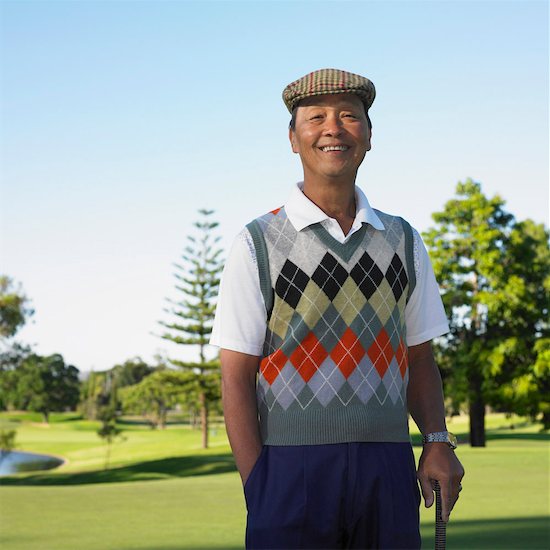Patients’ journey with prostate cancer
A qualitative study shows ageing men in Singapore grappling with cancer fears and reduced sex life.
 Ageing men are finding it difficult to accept a reduced sex life following prostate cancer, according to findings from a recent qualitative study. The study also found that although the men confided in their loved ones and church friends about their prostate cancer diagnosis, many found it hard to discuss the issue of erectile dysfunction (ED) and incontinence – two conditions associated with the cancer.
Ageing men are finding it difficult to accept a reduced sex life following prostate cancer, according to findings from a recent qualitative study. The study also found that although the men confided in their loved ones and church friends about their prostate cancer diagnosis, many found it hard to discuss the issue of erectile dysfunction (ED) and incontinence – two conditions associated with the cancer.
One respondent was quoted as saying: “I couldn’t even discuss the [ED] with my wife. She used to think that I am tired or weak after surgery. But I could never tell her the truth.” Another shared a reassuring outcome from confiding with his wife: “My wife says that she is happy so long I can hug her … and that’s strength. Now who would think of sex.”
The study, which was conducted last year with six men aged 66 to 85 with advanced stage prostate cancer (and who have been battling cancer for five to six years) and six physicians including urologists, was put together by IMS Health for pharmaceutical company Janssen. The company wanted to find out their journey and to understand the patients’ challenges.
Other findings:
• Regret – Some patients showed signs of regret for not going for regular check-ups. One respondent shared: “I was an avid jogger. One day, I felt pain in the knee and went to my family doctor. He suggested that I should undergo a routine health check-up. My cancer was picked up during those tests. I would say I had sometimes felt difficulty in urination, but I thought that probably the age is catching up and therefore, never thought about it.”
• Depression – When the news is broken about the cancer, the patients are stunned. Shared Ankit Kulshrestha, consultant, IMS Health, “The elderly patients tend to refuse to go for treatment.” Shared a caregiver in the study: “My father actually went into a depression when he heard that he has cancer. On hindsight, I think, maybe we shouldn’t have told him. He kept repeating to himself – I would die soon. All my friends and your mother are up there … I will join them soon. I am done with life … you know, things like that.” Shared an urologist in the study: “… With older patients, it’s more the problem of dejection and hard to motivate [them].”
• Treatment options – Before there was radical surgery but today there is the option of keyhole (robotic) surgery beyond the available radiotherapy, hormone therapy and chemotherapy. Said Kulshrestha, “Not all patients would go even with these options as they worry about the associated side effects and they feel they can’t deal with them.” He added that there is a drop-off rate of between 20 percent to 30 percent. He also said that some will try alternative treatment but without much success.
• Hard to open up – Patients find it hard to open up beyond their caregiver or doctor. Kulshrestha added: “They become shy and retreat back to their shell.” One respondent shared: “Imagine me wrapped up in adult diapers and meeting my friends or ex-colleagues. I suddenly become shy … afraid of meeting people.”
Prostate cancer is the third most common cancer among men in Singapore. The risk of prostate cancer rises after the age of 50 and by 5.7 times over the past 40 years from the previous figure of 3.2. There are more than 500 cases of prostate cancer diagnosed each year in the last five years in Singapore, and 100 deaths from prostate cancer each year here.
Professor Peter Lim, medical director at the Andrology, Urology & Continence Centre, said, “Patients are still coming in late and there is poor quality of life. … There is a new generation of drugs today and they are a God-sent. Whether early- or late-stage, patients should seek treatment.” He added that prostate cancer is “very slow progressing” and there is a considerable time gap from diagnosis of early stage to advanced stage prostate cancer and at the early stage may not show symptoms.
He said: “Even if you have prostate cancer, life is not over.”
|
SIDEBOX: Preventing prostate cancer According to some recent medical evidence, to prevent prostate cancer, you should look at your diet and lifestyle, which includes exercise. Here are a few tips (which were revealed at the prostate cancer qualitative study release): 1) Add more Omega-3 into your diet including salmon, mackerel, trout, tuna, herring and sardines. 2) Avoid burnt or charred meat. 3) Eat lest red meat, take chicken breast and tofu. 4) Add flaxseed into your food. It is a form of phytoestrogen and an anti-oxidant. 5) Add soy protein and reduce your carbohydrates. 6) Drink green tea. 7) Take tomato sauce – more effective than fresh tomatoes. 8) Avoid simple sugars such as candy, carbonated beverages, etc. 9) Do aerobic and resistance training. 10) Avoid complex carbohydrates such as legumes, starchy vegetables like potatoes and corn, rice and grain products. Choose foods that are less starchy and more fibre.
|
(** PHOTO CREDIT: Society of Men’s Health)

0 Comments